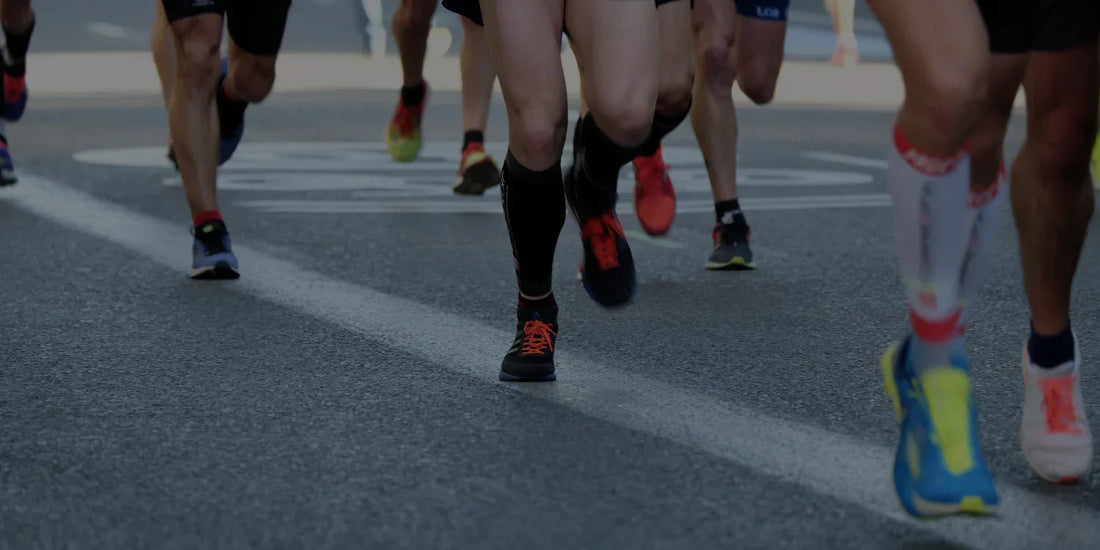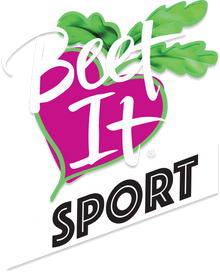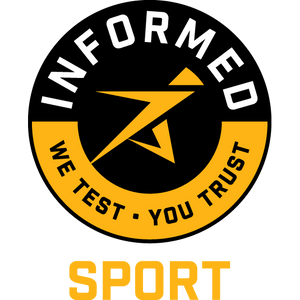
Best Marathon Fueling Strategy for Peak Performance
Fuelling the body is a bit like putting fuel in your car. If you add the wrong type of fuel, or worse, no fuel at all, then your performance will...
Running a marathon is as much about preparation as it is about endurance. Training your body through long runs is only half the challenge. The other half lies in fueling correctly. A smart marathon fueling strategy helps you sustain energy, prevent fatigue, and finish strong on race day.
This article covers everything you need to know, including what to eat during a marathon, how many carbs per hour, hydration needs, and the best running snacks to keep your body performing at its peak. Many athletes also rely on Beet It Sport Nitrate 400 shots for a natural nitrate boost that supports endurance and performance.
Why Marathon Fueling Strategy Matters
During a marathon, your body relies heavily on stored glycogen for energy. However, glycogen reserves are limited. If you don’t refuel at the right time, you risk hitting the dreaded “wall,” where energy drops, and performance declines.
The right marathon fueling strategy helps you:
- Maintain stable energy levels.
- Delay muscle fatigue.
- Support hydration and electrolyte balance.
- Improve recovery after the race.
Pre-Race Nutrition: Setting the Foundation
A marathon nutrition diet plan starts long before the race begins. The days leading up to your marathon are critical for topping up energy reserves.
Carbohydrate Loading
Carbohydrate loading increases glycogen stores. Aim for:
- 7–10 grams of carbs per kg of body weight in the final 2–3 days before race day.
- Focus on easy-to-digest foods: pasta, rice, potatoes, bread, and fruit.
Marathon Diet Schedule Before Race
- 48–72 hours before: High-carb meals with lean protein and low-fat sides.
- 24 hours before: Stick to simple carbs and avoid high-fiber or unfamiliar foods.
- Race morning: Eat 3–4 hours before start. Example: oatmeal with banana and honey.
Race Day: How to Fuel During a Marathon
Fueling mid-run keeps your glycogen topped up and prevents energy crashes. The timing and type of fuel matter just as much as the quantity.
How Many Carbs Per Hour Marathon Runners Need
- 30–60 grams of carbs per hour for most runners.
- Elite runners often target 90 grams per hour when combining multiple carb sources (glucose + fructose).
Best Mid-Run Fuel Options
- Energy gels (20–30g carbs each).
- Chews or blocks.
- Sports drinks with carbs and electrolytes.
- Bananas or dates for a whole-food option.
What to Eat During a Marathon
- Mile 5–6: Small gel or chew with water.
- Every 30–45 minutes after: Another gel or carb source.
- Sip sports drink steadily throughout.
Tip: Always test your fuel during training runs to avoid stomach issues.
Hydration: How Much Water to Drink During a Marathon
Dehydration reduces performance and can be dangerous. Overhydration, on the other hand, risks hyponatremia (low blood sodium).
Guidelines:
- Drink 400–800 ml per hour, depending on sweat rate, weather, and pace.
- Alternate between water and electrolyte drinks.
- Avoid drinking at every station if not thirsty—listen to your body.
Marathon Fueling Strategy by Race Stage
Breaking fueling into stages helps simplify the process.
Early Miles (0–10 miles)
- Don’t start too early. Take small sips of water.
- First carb intake between mile 4–6.
Middle Miles (10–20 miles)
- Stick to your plan of 30–60g carbs/hour.
- Alternate gels with sports drinks for balance.
Final Miles (20–26.2)
- Energy dips are common.
- A gel with caffeine may provide a final lift.
- Focus on sipping fluids at aid stations.
Diet Plan for Marathon Runners: Training Nutrition
Your marathon diet schedule during training should mimic race-day needs. Training is the best time to practice fueling.
Daily Nutrition Essentials
- Carbohydrates: Base meals on whole grains, fruits, and vegetables.
- Protein: 1.2–1.6 g per kg body weight daily for muscle recovery.
- Healthy fats: Avocado, nuts, seeds, and olive oil.
- Hydration: Aim for steady intake throughout the day.
Long Run Fueling Practice
- Simulate race conditions.
- Use your best running snacks and test tolerance.
- Record timing and amounts that work for you.
Best Running Snacks for Training and Race Day
Here are reliable options that support both training and race performance:
- Energy gels and chews.
- Bananas, raisins, or dates.
- Sports drink with electrolytes.
- Pretzels for salt replacement.
- Homemade rice cakes with honey.
Recovery Nutrition After the Marathon
Recovery starts the moment you cross the finish line.
Key Recovery Steps
- Carbs: Refill glycogen within 30–60 minutes.
- Protein: 20–30g for muscle repair.
- Fluids: Replace lost fluids and electrolytes.
- Balanced meal within 2 hours.
Good options include smoothies with fruit, protein powder, and beetroot juice, or rice with chicken and vegetables.
Using Nitrate-Rich Drinks to Support Endurance
Recent research supports the use of dietary nitrates for endurance performance. Beetroot juice is one of the most effective sources.
Beet It Sport Nitrate 400 Shot provides a convenient, concentrated source of dietary nitrate. Many athletes use it before long runs to improve oxygen efficiency and delay fatigue.
Learn more here:
- Beet Juice for Runners
- How Does Beet Juice Improve Athletic Performance
- Beetroot Juice and Female VO2 Max
Common Fueling Mistakes to Avoid
- Skipping breakfast on race day.
- Trying new foods or drinks mid-race.
- Overloading on gels without enough water.
- Ignoring electrolytes in hot weather.
- Drinking too much plain water.
Sample Marathon Fueling Strategy Plan
Here’s a practical example for a 4-hour marathon runner:
Night Before
- Dinner: Pasta with tomato sauce, bread, banana.
Race Morning
- Breakfast: Oatmeal with honey, toast, small coffee.
- Sip 400–600 ml water before start.
During Race
- Start: Sip water.
- Mile 5: Gel + water.
- Mile 10: Sports drink.
- Mile 15: Gel + water.
- Mile 20: Gel with caffeine + electrolyte drink.
Post-Race
- Smoothie with fruit, protein, and Beet It Sport Nitrate 400 Shot.
- Balanced meal within 2 hours.
Final Thoughts
The best marathon fueling strategy combines proper carb intake, smart hydration, and planned recovery. Training your gut to handle carbs, practicing with different fuels, and sticking to a proven plan ensures you perform at your best.
With the right marathon nutrition diet plan, you’ll run strong from start to finish. And by incorporating nitrate-rich support like Beet It Sport Nitrate 400 Shot, you can add an extra edge to your endurance.


